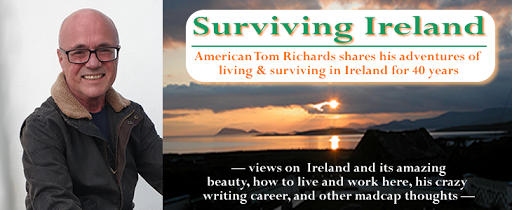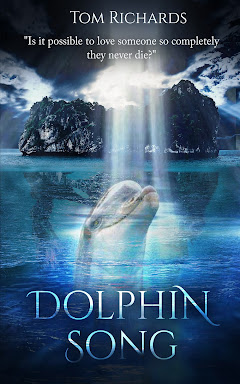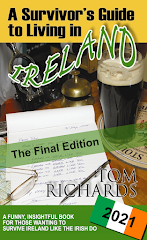
Recently, I received an email from my favorite publisher, escapeartist.com, stating that they'd been contacted by Siobhan Maguire, a hard working reporter for Ireland's top newspaper, The Sunday Times. Siobhan, in turn, had contacted escapeartist in that she has been tasked with writing an article about Retiring in Ireland. That article, in turn, has been prompted by the following:
In its Oct 15 2009 article
'The 10 Best Retirement Havens', Forbes Magazine ranks Ireland as Number 5 on their list. Not too shabby, I must say. Forbes notes that Ireland ranks high on the list for the friendliness of its locals, as well as its 'rest and relaxation' index. The beauty of the country is also noted, as well as the (relatively) low local taxes.
Their article - and a chat with Siobhan - started me thinking. If I were an American living, say, in Michigan, would I want to consider retiring in Ireland? And if so, why would I? What are the benefits of retiring here? What are the downsides? What would I have to do to gain permission to live here?
Manana...Irish Style
I had an Uncle in Law named Bernie, a true fisherman if there ever was one. Bernie lived in Navan, of course, and spent most of his time on the Boyne River, rod in hand. The man was forever tying flies, and grumbling at his poor luck in landing a salmon...but I'll say this about him: he knew how to live a stress-free retirement. Bernie's idea of a day out was throwing his rod over his shoulder, packing a couple of sandwiches and a flask of tea in his fishing bag, and walking off down the river for a day spent in the misting Irish rain.
He'd whistle to himself as he strolled down the river, with nary a care in the world. The man lived to be 89. One day, he must have decided that the fishing would be better on the other side of that Great Divide in the sky, because one morning he simply refused to wake up. He passed away with a secret smile on his face, and I suspect that he was already considering the casts that he'd use in God's fishing grounds.
Bernie had the right idea: he'd let his worries wash off his back as easily as shaking the rain from his broad fishing hat. And many Irish that I know do the same thing. Maybe it's genetic (and God knows that as a non-Irish person I can sweat the small stuff - as well as the large - most of the time) but many Irish friends of mine - including my good wife - have the ability of saying 'manana' to themselves. Perhaps they see a bigger picture: of life filled with gentle rivers, sweeping green hills, and verdant golf courses. They know that life isn't about the stresses and strains that we're faced with daily, but rather about friends and family; holidays and celebrations; a pint and a laugh with friends.
For that reason alone, this attitude toward living that is at the heart of many Irish souls, Ireland is worth considering as a retirement destination. But there are many more reasons to consider moving here.
Lower Costs of Housing - buying or renting a house in Ireland hasn't been as inexpensive in over 5 years. Now that the Celtic Tiger has met its much publicised demise, finding yourself a little corner of Irish heaven in which to call home is affordable. For instance: a newly refurbished 2 bedroom cottage with lake frontage on Lough
Ramor is being sold for €90,000 - that's approx $135,000. Go to
http://www.daft.ie/ for more information on hundreds, if not thousands, of affordable Irish properties.
The Friendliness of Her People - I've written about this time and time again. But it's true. The people here really are friendly, and welcoming, and usually accepting. Yes, and depending on where you live, they can have a 'village mentality' which occasionally means that they'll know your business before you do. But chatting over the gate with a neighbor, or having a pint with a friend, or simply strolling up to a stranger to ask directions - leading to a chin-wag that can last an hour - is one of the charms of this country that I most value.
The Beauty of Her Character - Ireland is beautiful, and make no mistake about it. From the shore just north of Dublin, to the hills, mountains and cliffs of the west coast, this country is a veritable picture post card of pleasing geography. What I love most about Ireland, however, is the simple solitude that is available almost anywhere. I find nothing more enjoyable than taking a walk along a country road; smelling the fragrances of heather and green fields in the air; of the simple quietness that allows one to hear a bee bumble busily in a nearby rose bush, or a far off cow moo her pleasure. The simple beauty of this country is rarely matched.
The Cultural Crossroads of Her Fabric - Ireland is a tapestry of interwoven - and sometimes conflicting - cultural cross-currents. Here, in this little island that measures slightly more than 300 miles long, rests a history that stretches back millennia, but that also contains a highly skilled and educated people, and one of the most potent centres of technology in the world. Here, and within miles, you can visit a monument to Bronze Age engineering (Newgrange, which is only 5000 years old, and by many archaeologists' reckoning, is older than the Pyramids), and the latest chip fabrication plant in Leixlip County Dublin (Intel, one of the world's most profitable tech companies).
Doctors and All Things Medical - we have some great hospitals in this country, and some fine medical practitioners. In my opinion, the medical community really is concerned about the people that they serve. And it's still relatively inexpensive: about €50 to visit your GP.
The Cost of Living - okay, and I'll admit it: Ireland has a bad press when it comes to the cost of living here. For years, the country managed to price itself out of the reach of many visitors -and residents, come to think of it. But the good news is this: prices here are falling rapidly. Everything from the electricity that we use to the vegetables that we buy is becoming less expensive. The downside, of course, is that the economy is still contracting as I write this. But the good news is that it's more affordable.
The Downsides of Retiring Here
I'd be remiss if I didn't point out the negatives to retiring in Ireland.
It rains a lot. And I mean A LOT. This year, November has been one of the wettest months on record. But that doesn't stop you from taking a walk, drinking a pint in a local pub while being warmed by a peat fire, or chatting with a neighbor over a cup of tea. Dress for the weather, and it's still a wonderful place to live.
It's also true that Ireland has high levels of 'unseen' taxation. While it's true that those incomes aren't hit as hard as many countries at source (that is, we pay less in Income Tax and social security taxes than many), we are hit by a wide variety of so-called 'stealth' taxes. See my article about the costs of living in Ireland for more information.
Too, being an ex-pat can be a lonely and emotionally draining experience. I've written about this before, but it's something to keep in mind. If you're considering retirement in Ireland, or any other country, remember that the culture will be different to what you're used to. The people are different. They will have different attitudes and beliefs. What I will say is that this is part of the experience of living overseas. If you move with the right attitude, you'll do just fine. But don't be surprised if you battle moments of self-doubt about your decision, or occasionally wish that you'd never moved at all. That too is part of the emigrant journey. And as I always say - if I can survive abroad, so can you.
So What Do You Have to Do?
If you're considering a retirement to Ireland, you will have to prove that you will not be a financial burden to the country. To that end, you'll have to apply for a 'Self-Sufficiency Visa' in which you'll have to spell out your financial
wherewithal. Too, you will probably be asked to prove that you have sufficient health insurance. For more information, visit the Citizens Information website, and their
Retirement section.
For more information on living and surviving in Ireland, why not consider purchasing Tom Richards' book on the subject. Just click here.
 Recently, I was asked by my online publisher, http://www.escapeartist.com/, to pen a travel thingy about how we celebrate an Irish Christmas over here. I thought and thought - and the more I thought, the more I wanted to do something a little different. The result is a story about my Irish friend, Ann McGoona.
Recently, I was asked by my online publisher, http://www.escapeartist.com/, to pen a travel thingy about how we celebrate an Irish Christmas over here. I thought and thought - and the more I thought, the more I wanted to do something a little different. The result is a story about my Irish friend, Ann McGoona.


















